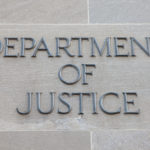Unearthing the Dead
You never know what – or who – lies beneath the surface. Imagine you are engaged in construction, landscaping, or some other improvement to real property, and suddenly you make a grim discovery. You have unknowingly stumbled upon an unmarked grave with human remains. The following is an overview of the laws in Tennessee regarding your obligations after accidently disturbing a gravesite and the emphasis in Tennessee on treatment of the dead with the respect and dignity that they deserve.
The first thing you need to do is STOP. Once you realize the nature of your discovery, you suddenly have several important legal duties that you must fulfill or face potential criminal penalties. With some exceptions for farming and surface collecting activity, Tenn. Code Ann. § 11-6-107(d) requires parties who encounter or accidently disturb human remains to immediately cease disturbing the ground and contact the state coroner or medical examiner and local law enforcement. Failure to comply with these requirements is a Class A misdemeanor. Tenn. Code Ann. § 11-6-107(d)(5). Either the coroner or the medical examiner must examine the find and, within five working days, determine whether the site merits further investigation. If the coroner or the medical examiner and law enforcement have no forensic or criminal concerns with regard to the site, then the coroner or the medical examiner shall notify the Tennessee Division of Archeology.
So you’ve notified the proper persons, and there are no forensic or criminal concerns. What now? Tenn. Code Ann. § 11-6-119 imposes with some exceptions a duty to rebury the remains within six months of the discovery and details the manner in which the remains must be reburied, providing for scientific analysis of the remains. Tenn. Code Ann. § 11-6-104 discusses the treatment of artifacts recovered at the gravesite, stating that these objects may become the property of the state of Tennessee and placed under the custodianship of the Division of Archeology. These statutes apply to the inadvertent unearthing of human remains per Tenn. Code Ann. § 11-6-107(d)(4).
The difficulty comes when you find it necessary to relocate the gravesite, such as if the graves are discovered during the construction of a residential neighborhood, and you had planned to build at or near where the remains are located.
The difficulty comes when you find it necessary to relocate the gravesite, such as if the graves are discovered during the construction of a residential neighborhood, and you had planned to build at or near where the remains are located. Tennessee has a set of statutes outlining the procedure for termination of a site as a burial ground. Tenn. Code Ann. § 46-4-101 to -104. Either the owner of the real property where the grave was discovered, certain governmental entities, or any other interested person may bring the petition in the chancery court in the county where the grave is situated. Tenn. Code Ann. § 46-4-103(a).
Tenn. Code Ann. §§ 46-4-102, -103(b) and relevant case require the petitioner to make reasonable efforts to locate potential interested persons. “Interested persons” is defined in Tenn. Code Ann. § 46-4-102 to include the nearest relative(s) of the decedents. From a practice standpoint, genealogy websites can come in handy for this task. Tenn. Code Ann. § 46-4-103(b) provides that known defendants who are minors or otherwise incompetent or under disability shall be represented by a guardian ad litem. If the petitioner cannot locate the interested persons, then the petitioner may notify unknown defendants by publication. Tenn. Code Ann. § 46-4-103(b). Effective 2018, Tenn. Code Ann. § 46-4-103(c) contains provisions requiring notice to the Tennessee Historical Commission.
 To be successful, the petitioner in such an action must show to the court that the burial ground is no longer suited or proper for use as a gravesite: (1) because the burial ground is abandoned; (2) because the burial ground is in a neglected or abandoned condition; or (3) because of the existence of any conditions or activities about or near the burial ground that the court finds render the further use of the burial ground inconsistent with due and proper reverence or respect for the memory of the dead, or for any other reason unsuitable for those purposes. Tenn. Code Ann. § 46-4-101.
To be successful, the petitioner in such an action must show to the court that the burial ground is no longer suited or proper for use as a gravesite: (1) because the burial ground is abandoned; (2) because the burial ground is in a neglected or abandoned condition; or (3) because of the existence of any conditions or activities about or near the burial ground that the court finds render the further use of the burial ground inconsistent with due and proper reverence or respect for the memory of the dead, or for any other reason unsuitable for those purposes. Tenn. Code Ann. § 46-4-101.
As part of the petition, the petitioner must have a plan in place for relocating and reburying the decedents. The petitioner must show to the court’s satisfaction that the removal and reburial of all the remains will be done with due care and decency and that suitable memorial or memorials will be erected at the place of reburial. Tenn. Code Ann. § 46-4-104. From personal experience, the court may want to know such details as what type of marker will be placed at the new gravesite and the permanency of the memorial, such that the grave is not lost again in the future.
Some of the above discussion varies depending upon whether the grave discovered contains Native American remains or artifacts. For a detailed discussion of rules applicable in such a situation, see State ex rel. Comm’r of Transp. v. Eagle, 63 S.W.3d 734, 743 (Tenn. Ct. App. 2001).
Lisa Helton is a business lawyer concentrating in the area of Litigation and Dispute Resolution.
photo credit: Des D. Mona via flickr cc





